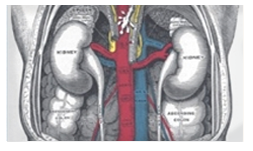Contact Us Today
732-602-0244
Kidney Disease Education |
Nutrition
 Nutrition and chronic kidney disease
Nutrition and chronic kidney diseaseIf you’ve been diagnosed with chronic kidney disease (CKD), awareness of your food choices and how these choices can affect your kidneys is important. READ MORE »
The ABCs of vitamins for kidney patientsLearn about vitamins, the role they play in keeping us healthy and how CKD changes vitamin requirements. READ MORE »
Phosphorus and the kidney dietAlthough phosphorus is a mineral that is vital for good health, too much phosphorus can have very harmful effects on the body. People with chronic kidney disease can have high levels of phosphorus if their kidneys are no longer functioning well enough to remove it from the body. One way to protect against unhealthy phosphorus levels is by limiting the amount of high-phosphorus foods and drinks consumed. READ MORE »
Potassium and the kidney dietPotassium is a mineral that is important for good health. However, a person with chronic kidney disease may have an unhealthy level of potassium in the body. Some people with kidney disease may be instructed to eat a low-potassium diet to keep potassium levels in the bloodstream in a healthy range. READ MORE »
Protein and the kidney dietEvery cell in our body contains protein, and it is necessary for life. But when the kidneys are not functioning at normal levels, the body may not be able to process large amounts of protein. As part of a kidney-friendly diet, a dietitian may recommend that you consume smaller amounts of protein. READ MORE »
Calcium and Chronic Kidney DiseaseCalcium is the most abundant mineral found in the body. About 99% of the calcium in the body is in bones and teeth. The remaining 1% is found in blood and soft tissues. Calcium recommendations for people with chronic kidney disease (CKD) are different from those for the general population. READ MORE »
Helpful Kidney Nutrition Resources:Article and Links
Are you in control of your diabetes… READ MORE »
^ BACK TO TOP
Stuart M. Homer MD and Associates
1030 St Georges Ave
Suite 201
Avenel, New Jersey 07001
Stuart M. Homer MD and Associates provides care to adult patients suffering from kidney-related diseases and disorders including high blood pressure, hypertension, diabetes, chronic kidney disease, end stage renal disease, post-operative transplant maintenance, disorders of electrolyte and mineral metabolism, kidney stones, and medical weight loss services in Avenel, New Jersey and the surrounding communities.